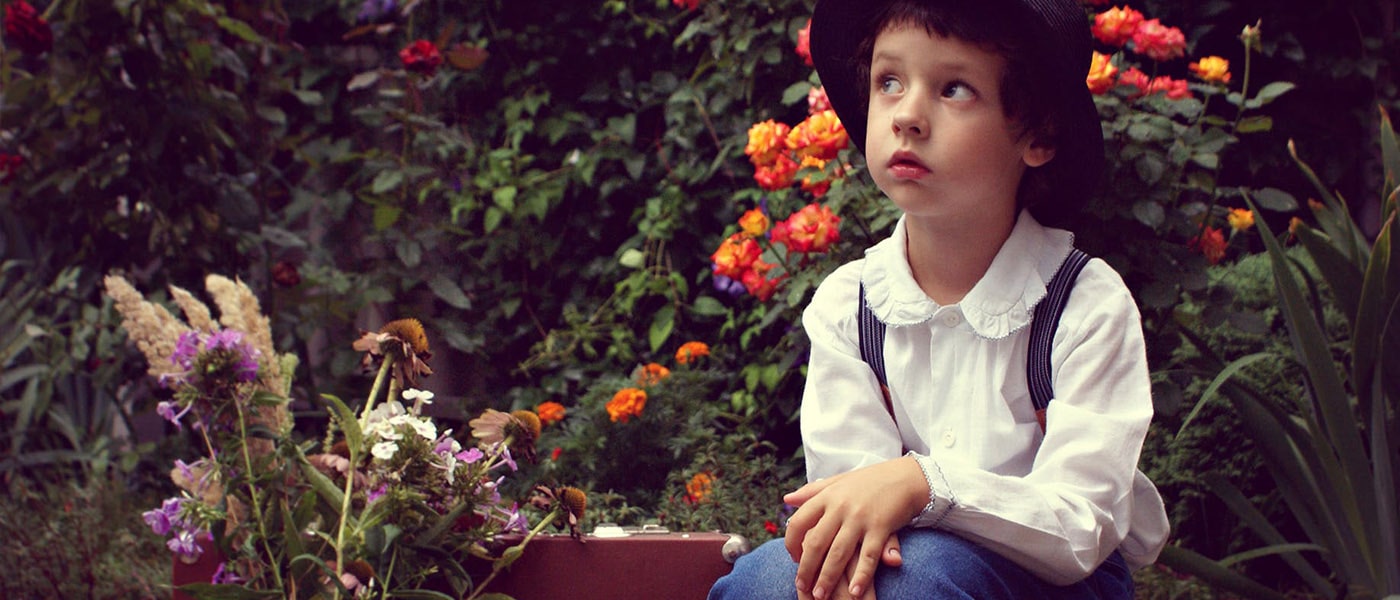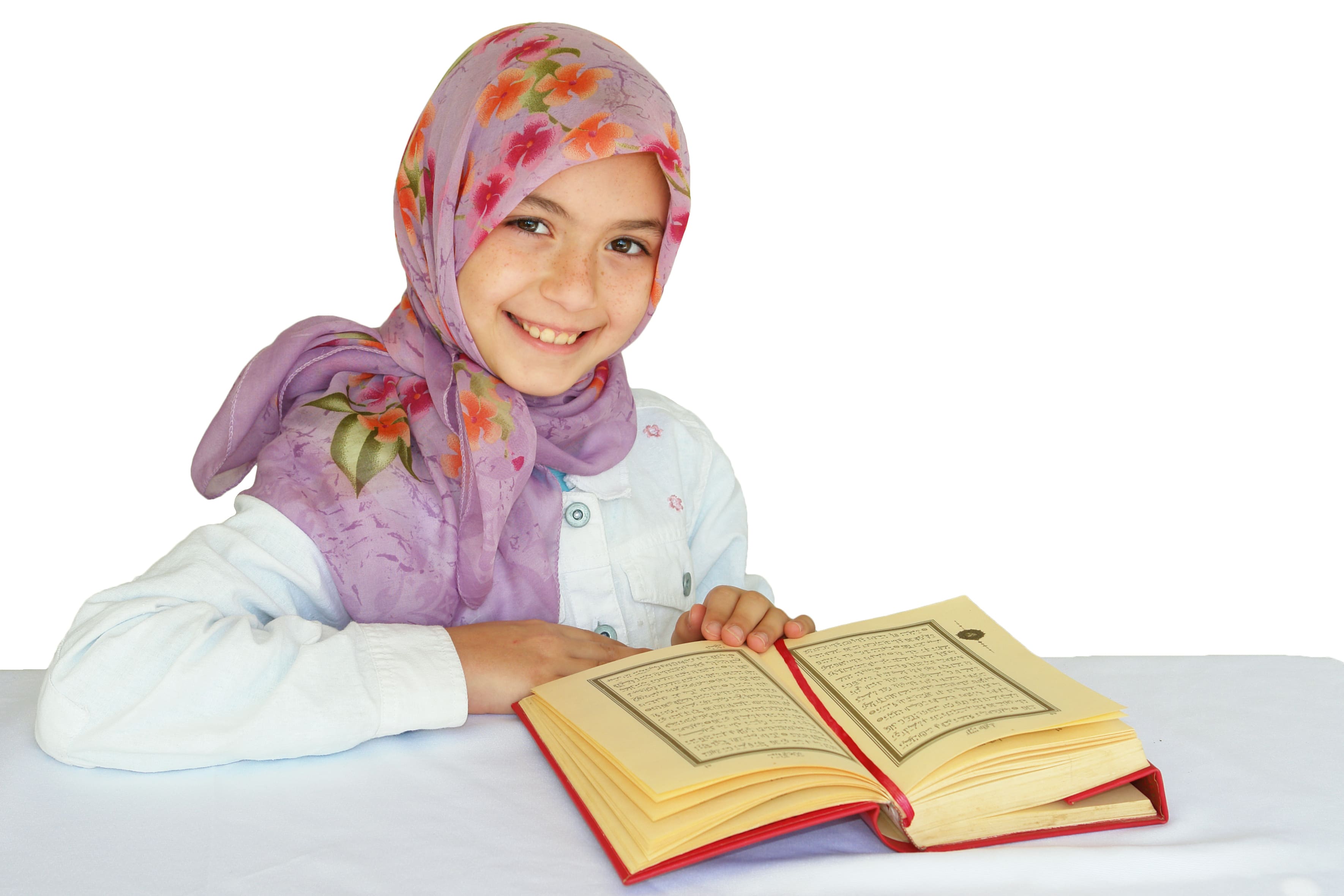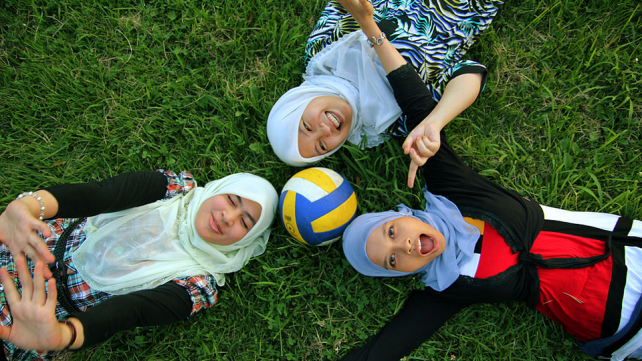

You Are Responsible for Your Flower
“He is only a child!”, “Be quiet, this is a grown-up issue”, “Go to your room and don’t disturb us while we are talking” … What do these sentences remind you of? Your own childhood? Your little son or daughter? you have probably heard these statements at least once or twice in your lifetime. Remember this, “ You are responsible for your flower ”. Now let’s read the following extract in this regard:
“It was the time of prayer (Salat). Prophet Muhammad (PBUH&HP) who was with his grandchild, Hassan Ibn Ali (AS), invited people to perform this holy task. While standing for Salat, Prophet put the child beside himself and started his prayer. People who were behind him wondered why he had lingered in prostration for a long time, but there was no way for them to find out the cause in the middle of Salat. After they had finished, they inquired the reason of the Prophet (PBUH&HP): ‘we had never seen such a prostration from you. We thought that you were receiving revelations from Allah that made you linger in your prostration for such a long time’. He answered: ‘No it was not a revelation. My child, Hassan (AS), was climbing over me when I was in prostration and I did not want to rush and put him down. So I waited for him long enough to come down himself’” [1].
Or consider this account:
“Once prophet Muhammad (PBUH&HP) and other Muslims stand to perform Midday prayer (Salat al-Zuhr) in a congregational manner. However, after performing the second Rak’ah, Prophet (PBUH&HP) suddenly made haste in finishing the two remaining Rak’ahs. After the prayer was finished, the people around him asked: ‘Has something unpleasant happened that you made haste in completing your prayer?’ Prophet answered: ‘Haven’t you heard the voice of that baby who was moaning?’” [2]
These and many other examples from our kind Prophet shows the deep regard of our religion for the dignity and self-worth of children in Islam.
Through his speech and manner, Prophet Muhammad (PBUH&HP) constantly invited his followers to treat children in Islam with respect and to devote great attention to their behavior toward them; when his grandchildren entered a room, Prophet (PBUH&HP) would stand up and welcome them warmlyi, he was always the first one who greeted children and never refused children’s request for playing with them and participated in their games [3].
As a result of this kind of behavior, children in Islam will feel worthy of respect and will show more confidence in their actions. Consequently, when they grow up, they will be able to take risks and use their full capacity not being afraid of failure and humiliation.
On the contrary, the child whose dignity has been neglected by his/her parents will end up being shaky and not confident, not able to decide for his/her life and find his/her way to success. A beautiful analogy by Prophet Muhammad (PBUH&HP) will clarify this fact more: “my cloth will be cleaned by water, but what will cleanse my child’s heart from the dust of discomfiture and the pain of humiliation?” [4]
So, in raising our children in Islam, it is our responsibility to be highly observant not to say something or act in a way that would deny their self-worth and dignity and belittle them in any way. Children are sensitive creatures, like flowers, an action or a remark which may seem to us unimportant and natural, can wither their beautiful and innocent souls easily, and mark a permanent injury on their heart. Remember, “You are responsible for your flower”.
Notes:
[i]. This behavior of Prophet (PBUH&HP) was probably because of the great personality and value of Imam Hassan (AS) and Imam Hossein (AS), however, when we consider it along with other Hadiths, we can easily distinguish the affectionate and compassionate manner of him toward children.
References
- Ibn Shahr Ashub, Muhammad. Manaqib Al Abi Talib. V.4, P.24.
- Ali Ibn Hassan Tabarsi. Meshat al-Anvar. P. 243.
- Abbas Qomi. Safinah al Bahar. V.2, P.676.
- Falsafi, Muhammad Taqi. Child in Hereditary and Upbringing View (Kudak Az Nazare Verasat va Tarbiat). P.259.
Share This Article

Is Adopting Children Permitted in Islam?
Many incidents happen in societies which make so many children orphans, Incidents such as earthquakes, floods, tsunamis, or smaller events. Thus, the issue of taking care of these orphan kids becomes a challenge that should be dealt with. Many of these children may be sent to orphanages by the government.
And they keep waiting for some family to adopt them and take care of them. But, there are many parents who cannot give birth to a child and they wish to adopt one and make their family bigger. Some parents may have children of their own, and they want to adopt a child to help and take care of him/her.
This text explains the rulings of adopting a child according to the Islamic law.
The Difference Between Adoptive Children and Biological Children
There are four major differences in Islamic law between adoptive and biological children:
1- Adopted children are better to be named after their biological parents. If they are named after their adoptive parents, the foster parents should not precisely introduce them as their own child. (This is forbidden (Haram) since it is a lie.)
2- Adopted children do not automatically inherit from their adoptive parents. Unless it is mentioned in the parents’ will.
3- When adopted children become mature (Baligh) they will become of the marriageable kin (non-Mahram) to their adoptive family (parents, brothers/ sisters, uncles/ aunts).
4- The property of an adopted child (provided by his/her biological parents or family members) belongs to him/ her. Adoptive parents will keep it as mere trustees.
The Importance of Supporting Orphans in Islam
Islam has careful considerations towards orphans. Prophet Muhammad (PBUH&HP) himself had adopted a child and was fed by an adoptive mother during the first two years of his life.
It is narrated by Prophet Muhammad (PBUH) that “‘ The one who sponsors an orphan and I are like these two in Paradise.’ Then he joined his index and middle fingers” [1].
Orphans are so important in the eyes of God that Allah says in the Holy Quran “Indeed those who consume the property of orphans wrongfully, only ingest fire into their bellies, and soon they will enter the Blaze.” (4: 10)
There are specific rules in Islam with regards to adopting children.
In Islam, biological parents and the family lineage are of great significance. So, child adoption must not occur in a way that children lose their filiation. It is essential to keep in mind that according to Islam, filiation will be inherited from biological parents. Thus, by making a child adoption contract, the adoptive family will not be the child’s filiation.
Adopting Children or Child Protection
According to Islamic law, child adoption is forbidden (Haram). But child protection (Kifalah) is highly recommended. By child adoption we mean, accepting a child and considering him/her as the adoptive parents’ real child. By child protection, we suggest that the child is being taken care of by his/ her foster parents. And at a suitable age, he/ she will be informed of his/her real filiation.
Thus, there is no problem in accepting a child as his/ her protector (Kafil). It becomes problematic when adopted children are not told the truth about their biological parents. It is understandable that it would be hard to tell any child that he/ she is not a family’s real child. But, consultations can help parents to find a proper way of telling the truth to their adopted child.
Besides, it is highly recommended in Islam to protect and support orphans, which means giving them financial and spiritual support in all aspects of their lives.
Why Islam Recommends Child Protection (Kafalah) instead of Adopting Children
There are many arguments about child adoption in Islam. Some people complain about the adoption rules. They believe that infants who have the chance of being adopted should be named after their adoptive parents. So they do not feel orphaned in society.
One of the points that Islam has in this regard is that the adopted children are of unmarriageable kin (non-Mahram). So when they grow up, they may face problems within their adoptive family.
Also if the adopted child is not aware of his/her real identity, there would be a chance of him marrying a marriageable kin (Mahram) of his/her biological family line without being aware of that. In Islam, like every other Abrahamic religion, it is forbidden to marry a marriageable kin (Mahram) [ii].
Is There Any way that the Adopted Child Could Become of the Marriageable Kin (Mahram)?
There is a tradition in some cultures that women do not feed their own children. Instead, they choose a wet nurse to breastfeed the child. The child who is breastfed from another woman, for a specific duration, will become of marriageable kin (Mahram) to the woman and her family.
Thus, if the adopted child is under two years old, and if the adoptive mother or her sister or her mother can breastfeed the child for a specific duration, a Foster (Ridha’) relationship will be created. As a result, the child will become of marriageable kin (Mahram) [i]. But the rulings with regards to inheritance is still the same.
Notes:
[i] For exact information about foster (Ridha’) you should refer to your own source of emulation (Marja’ taqlid)
[ii] Read more about marriageable kin (mahram) at http://salamislam.com/content/who-are-mahrams-islam/4
References:
- Humairi, Abdullah bin Ja’far, Qurbul Isnad, p. 9, hadith 315, Aalul-Bait (a.s.) Institute, Qom, first edition, 1413 A.H.
- Chapter Yousuf. verses 23 - 32
Read More

Children's Rights in Islam From Middle Childhood to Adolescence
A significant part of children's rights in Islam address the needs and demands of children during their years of adolescence.
Instruction for Middle Childhood (8 to 14 years old)
Middle childhood is the most decisive period of life, considering children's rights in Islam. It is a time when children develop fundamental skills for building healthy social relationships and learn roles that will make them ready to be confronted with adolescence and adulthood.
According to Islam, in this period a child should first be given necessary religious education so that he/she may not be misinformed and misled by anyone in belief or action.
In this stage, children should start to learn writing and reading. Also, moral characteristics and attributes should be institutionalized in their mind, and their acts step by step.
Imam Baqir (AS) has asserted: “When the child completes seven years, he should be asked to wash his face and hands, and then told to pray. This will continue till he reaches the age of 9 years, when he should be taught proper Wudu (Ablution), and should be guided by parents if he is not careful and proper Salat (prayer) - and he should be reminded if he is not regular” [1].

It is worth mentioning that puberty in most girls will begin at around 8-14 years. If a girl has reached puberty in this period, she must do all acts of worship that an adult is required to do. Parents should have particular attention to the girls in this age. So she must fast in Ramadan, and she must also cover her head when she prays and thus must be in full Islamic prayer clothing.
Prophet Muhammad (PBUH&HP) emphasized the teachings of two things to male children, as a part of children's rights in Islam. He said: “It is the right of the male child on his father to teach him the Book of God (Holy Quran), riding, and swimming.”[2]. It is also narrated that the prophet believed the duty of a father to be teaching his son to write [3].
The character of children is supple; they may easily be bent in any direction. If they are not given proper moral and religious education at this stage, changes of manner and thought would be difficult.
Children's Rights in Islam During Adolescence (after 14 years old)
This period is between childhood and adult age. After the age of 14, the human mind becomes stronger and new horizons are opened in front of one’s eyes. Therefore, puberty, marriage, domestic life and its complex problems come to the fore.
Nowadays, the young adults soon realize that he needs to look after himself in future; he knows that with every day passing, he becomes closer to the responsibilities and accountability of a family.
It is the right of adolescent to be involved in every decision making in family and parents should consider their opinions. As Prophet Muhammad (PBUH&HP) mentioned the child is the master for seven years and a slave for seven years and a vizier for seven years [4].
One of the children's rights in Islam that parents should observe is to be provided with marriage when they are old enough, without delaying it. Indeed, the Holy Quran and the Prophet (PBUH&HP) advise that young people be married when they are old enough [5].

The prophet (PBUH&HP) said: “Among the rights of the child over the parents are three: To give him a good name, to teach him to write and to help him marry when he comes of pubescence [6].
The aim of Islam regarding family can only be accomplished with the help of a good marriage. Accordingly, marriage is an important part, and significant matter of domestic discipline and children should be educated by parents in this matter.
Parents are responsible for providing the requirements of marriage. Actually, ideal primary education should be given to children by their parents and their duties are fulfilled by providing them with a job and helping them to marry.
References:
- Ibn-e Fazl-e Tabarsi, Makarim Al Akhlaq, p. 115.
- Muhammad ibn Ya‘qūb al-Kulaynī, Furū al-Kāfī, vol 6, p. 187.
- Abul Qasem Payandeh, Nahj-al feṣāḥa , p. 447.
- Muhammad ibn Ya‘qūb al-Kulaynī, Rawda al-Kafi , vol 6, p. 47.
- childrens rights in Islam
- Fattal Neyshaburi , Rawdat al-wa'izin , p. 369.
Read More

